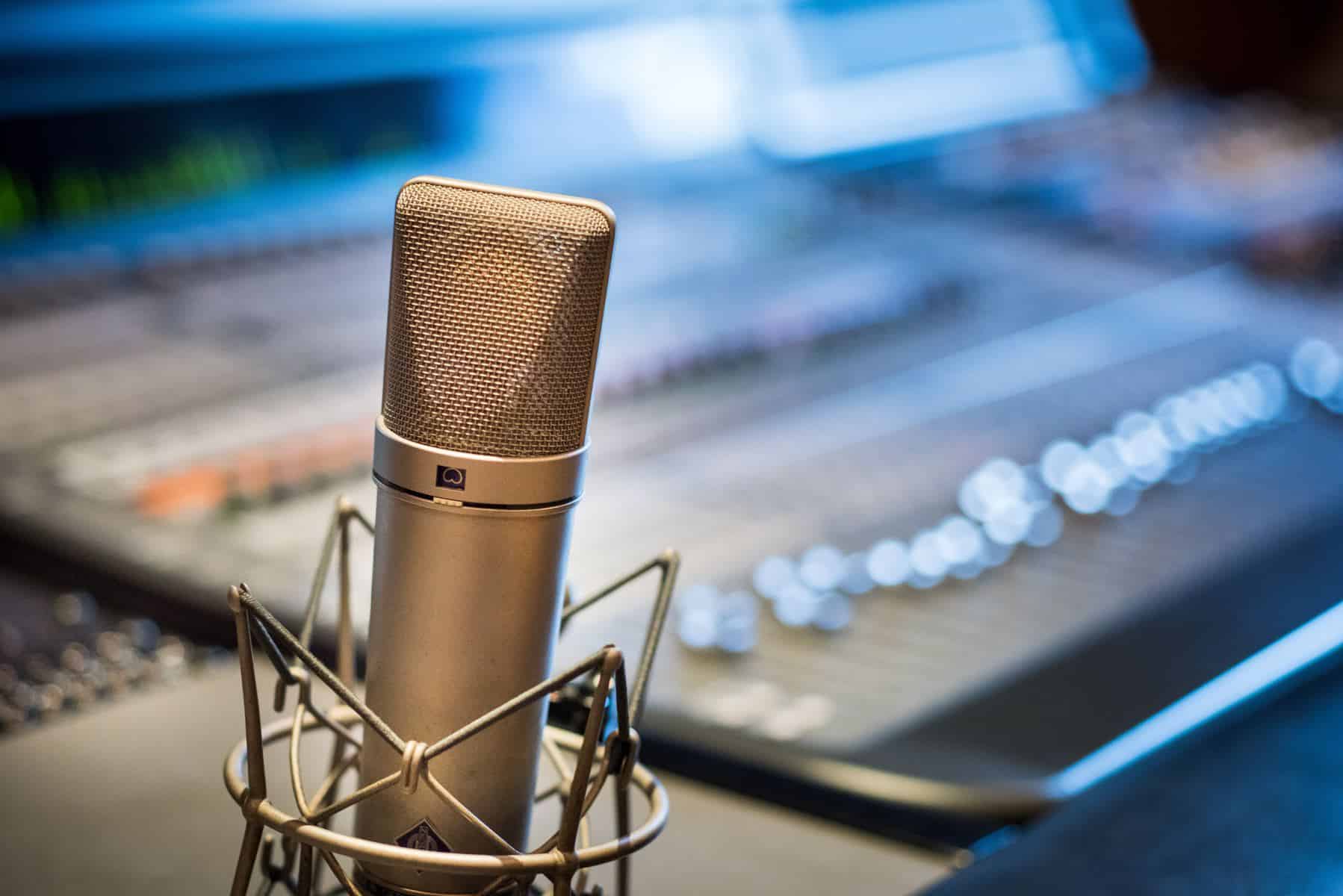Home>Events & Info>Music Therapy>How Much Does Music Therapy Cost


Music Therapy
How Much Does Music Therapy Cost
Published: February 2, 2024
Discover the cost of music therapy and how it can benefit you. Explore the expenses involved and find out if it's a viable option for your needs.
(Many of the links in this article redirect to a specific reviewed product. Your purchase of these products through affiliate links helps to generate commission for AudioLover.com, at no extra cost. Learn more)
Table of Contents
Introduction
Music has a unique power to touch our emotions and influence our well-being. It can evoke memories, uplift our spirits, calm our minds, and even foster physical healing. This incredible therapeutic potential of music has led to the development of a specialized field known as music therapy.
Music therapy is an evidence-based practice that utilizes music to address the physical, mental, emotional, and social needs of individuals across various age groups. It is conducted by trained and certified music therapists who incorporate a wide range of music-based techniques and interventions into their practice.
In recent years, music therapy has gained recognition as a valuable complementary therapy in healthcare settings. It is employed in hospitals, rehabilitation centers, mental health facilities, schools, and even private practices. The effectiveness of music therapy is supported by a growing body of research, highlighting its positive impact on various health conditions and disorders.
This article aims to provide a comprehensive overview of music therapy, its benefits, and the factors that can influence its cost. Whether you are considering music therapy for yourself or a loved one, understanding the potential benefits and associated expenses can help you make informed decisions.
Understanding Music Therapy
Music therapy is a holistic approach that uses music to address the physical, emotional, cognitive, and social needs of individuals. It is based on the understanding that music has the power to stimulate brain functions, evoke emotions, and facilitate communication and expression.
A music therapy session typically involves active participation in musical activities such as singing, playing instruments, and rhythmic movement. The therapist may also use recorded music or create personalized music playlists to support relaxation, stress reduction, or mood enhancement.
The goal of music therapy is to improve overall well-being, enhance quality of life, and promote self-expression and personal growth. It can be tailored to meet the specific needs of individuals of all ages, from infants to older adults, and can be beneficial for a wide range of conditions and challenges.
Music therapists undergo specialized training and hold degrees in music therapy. They are skilled in using various musical techniques, such as improvisation, songwriting, lyric analysis, and music listening, to facilitate therapeutic outcomes. They work closely with clients to establish goals, assess progress, and develop personalized treatment plans.
Music therapy can be utilized in a variety of settings, including hospitals, nursing homes, schools, mental health clinics, and even in the comfort of one’s own home. It can be provided on an individual or group basis, depending on the needs and preferences of the client.
It’s important to note that music therapy is different from music entertainment or music education. While music entertainment focuses on the enjoyment and performance of music, and music education emphasizes the development of musical skills and knowledge, music therapy is a specialized form of therapy that uses music as a therapeutic tool to achieve specific goals.
Music therapy can be utilized to address a wide range of conditions, including but not limited to:
- Autism spectrum disorder
- Depression and anxiety
- Post-traumatic stress disorder (PTSD)
- Alzheimer’s disease and other forms of dementia
- Chronic pain
- Substance abuse disorders
- Developmental disabilities
By harnessing the power of music, music therapy offers a unique and effective approach to promote healing, emotional well-being, and personal growth.
Benefits of Music Therapy
Music therapy offers a multitude of benefits for individuals across different age groups and diverse needs. Its therapeutic effects can be seen in various areas of physical, emotional, cognitive, and social well-being. Here are some of the key benefits of music therapy:
- Emotional expression and regulation: Music has the power to evoke and express emotions that may be difficult to verbalize. Through music therapy, individuals can explore and process their emotions in a safe and supportive space. This can be particularly beneficial for those struggling with depression, anxiety, or trauma.
- Stress reduction and relaxation: Listening to calming music or engaging in rhythmic activities can help reduce stress, promote deep relaxation, and alleviate physical tension. Music therapy techniques such as guided imagery, breathing exercises, and progressive muscle relaxation can aid in achieving a state of tranquility.
- Improved cognitive functioning: Engaging in musical activities can enhance cognitive skills such as attention, memory, and problem-solving abilities. Music therapy has been particularly effective in supporting individuals with neurological conditions, such as stroke, traumatic brain injury, or Parkinson’s disease.
- Enhanced communication and social skills: Music has the power to transcend language barriers and foster communication. In music therapy, individuals can find alternative ways of expressing themselves and connecting with others. It can be especially beneficial for individuals with developmental disabilities or social communication disorders.
- Pain management: Music therapy has been shown to reduce pain perception and provide comfort for individuals experiencing chronic pain or undergoing medical procedures. It can divert attention from discomfort, promote relaxation, and release endorphins, the body’s natural pain-relieving hormones.
- Improved motor skills and coordination: Engaging in rhythmic activities, playing instruments, or engaging in structured movement to music can enhance motor skills and coordination. This can benefit individuals with physical disabilities, motor impairments, or those recovering from injuries or surgeries.
It’s important to note that the benefits of music therapy are highly individualized, and the specific outcomes may vary for each person. The effectiveness of music therapy depends on various factors such as the individual’s condition, goals, preferences, and the skill and expertise of the music therapist.
Overall, music therapy offers a holistic approach to improving well-being, enhancing emotional expression, promoting social connections, and supporting cognitive and physical functioning. The power of music to heal and uplift is truly remarkable, and music therapy harnesses this power to facilitate positive changes in individuals’ lives.
Factors Affecting the Cost of Music Therapy
The cost of music therapy can vary depending on several factors. It’s essential to understand these factors to estimate the potential expenses associated with music therapy sessions. Here are some key factors that can influence the cost of music therapy:
- Location: The geographic location can play a significant role in determining the cost of music therapy. Therapists in urban areas or regions with a high cost of living may charge higher rates compared to therapists in rural areas.
- Experience and credentials of the therapist: Seasoned music therapists with advanced certifications and extensive experience may charge higher fees. They may have expertise in specialized areas and offer a higher level of personalized care.
- Duration and frequency of sessions: The length and frequency of music therapy sessions can impact the overall cost. Longer sessions or more frequent sessions may be more expensive than shorter or less frequent ones.
- Individual or group sessions: Individual therapy sessions typically cost more than group sessions due to the individualized attention and tailored treatment plans provided by the therapist.
- Additional services and resources: Some music therapists may offer additional services or resources, such as personalized music playlists, recordings, or follow-up support. These add-ons may incur additional costs.
- Practice setting: Music therapy services provided in specialized healthcare facilities or institutions may have different pricing structures compared to private practices or community-based organizations.
It’s important to discuss fees and payment options with the music therapist beforehand to have a clear understanding of the costs involved. Many music therapists offer free initial consultations or sliding-scale fees based on the individual’s financial situation. Exploring different payment options and seeking potential financial assistance or insurance coverage can help make music therapy more accessible.
Remember, the cost of music therapy is an investment in your well-being, and the benefits gained from the therapy may outweigh the financial considerations. It’s crucial to prioritize your health and explore options to make music therapy affordable and feasible within your budget.
Average Cost of Music Therapy Sessions
The cost of music therapy sessions can vary depending on factors such as location, experience of the therapist, and the specific services offered. It’s important to note that there is no standardized rate for music therapy, and costs can vary significantly.
On average, music therapy sessions can range from $50 to $150 per hour. However, these figures are approximate, and actual costs may be higher or lower depending on the factors mentioned earlier. It’s important to consult with individual music therapists or therapy centers to get accurate pricing information.
Some therapists may offer discounted rates for package deals or offer sliding-scale fees based on the individual’s financial situation. This can help make music therapy more accessible to those with lower incomes or financial constraints.
It’s also worth noting that music therapy sessions can be conducted both in-person and online. Online sessions have become increasingly popular and can sometimes be more cost-effective due to the absence of travel or facility-related expenses. However, the availability and pricing for online music therapy sessions may vary depending on the therapist or organization offering the service.
Additionally, the duration and frequency of music therapy sessions can influence the overall cost. For example, if a therapist charges $100 per hour and a session lasts for 45 minutes, the cost would be prorated accordingly. Similarly, more frequent sessions may result in a higher overall cost.
Insurance coverage for music therapy can also impact the out-of-pocket expenses. While some insurance plans may cover music therapy services, coverage may vary depending on the policy and the specific condition being treated. It’s important to check with your insurance provider to determine if music therapy is covered and to what extent.
Lastly, it’s important to remember that the cost of music therapy should be considered in relation to the potential benefits it can provide. The impact on an individual’s well-being, personal growth, and overall quality of life cannot always be quantified solely in monetary terms. It’s essential to prioritize your health and explore potential financial resources or alternative options to make music therapy more affordable if needed.
By discussing fees, payment options, and potential insurance coverage with music therapists, individuals can gain a better understanding of the costs involved and make informed decisions about pursuing music therapy.
Insurance Coverage for Music Therapy
When considering music therapy as a therapeutic option, it’s important to explore the potential insurance coverage available. While coverage for music therapy varies depending on the insurance provider and policy, some insurance plans do offer coverage for these services.
Insurance coverage for music therapy may be available under mental health or behavioral health benefits. However, it’s crucial to review the specific terms and conditions of the insurance policy to determine the extent of coverage.
Here are some key points to consider regarding insurance coverage for music therapy:
- Check your policy: Read through your insurance policy or contact your insurance provider to inquire about coverage for music therapy. Look for specific information on mental health benefits, rehabilitation services, or alternative therapies to see if music therapy is included.
- Medical necessity: In order for insurance to cover music therapy, it may be necessary to demonstrate that it is medically necessary. This typically requires a recommendation or referral from a healthcare professional, such as a physician or psychologist.
- Network providers: Insurance companies often have a network of preferred providers. It’s important to check if the music therapist you plan to work with is in-network, as out-of-network providers may result in higher out-of-pocket costs or limited coverage.
- Out-of-pocket expenses: Even if music therapy is covered by insurance, there may still be out-of-pocket expenses, such as copayments, deductibles, or coinsurance. Understand the extent of these expenses to plan accordingly.
- Pre-authorization requirements: Some insurance plans may require pre-authorization for music therapy services. This means that you may need to seek approval from the insurance company before starting therapy to ensure coverage.
- Documentation and records: Keep detailed records of all communication with your insurance company, including information regarding referrals, diagnoses, treatment plans, and session records. These documents may be required for insurance claims or appeals.
- Appeals process: If your insurance claim for music therapy services is denied, familiarize yourself with the appeals process provided by your insurance company. You may need to provide additional documentation or seek assistance from your healthcare provider to appeal the decision.
While insurance coverage for music therapy may not be available in all cases, it is worth exploring to help offset the costs associated with therapy. It’s advisable to engage in open communication with insurance providers and music therapists to understand the resources available and make informed decisions about pursuing music therapy.
If insurance coverage is not available or limited, there may be other potential sources of financial support or low-cost alternatives for accessing music therapy services. Community organizations, research studies, or government-funded programs may offer options for reduced-cost or free music therapy sessions.
Remember to advocate for yourself and explore all possible avenues to make music therapy more accessible and affordable for you or your loved ones. The potential benefits of music therapy make it a valuable investment in your overall well-being and quality of life.
Low-Cost or Free Music Therapy Options
While music therapy services can come with a cost, there are several low-cost or even free options available for individuals who may not have the financial means to access traditional music therapy services. These options can help make music therapy more accessible and provide opportunities for individuals to experience the benefits of music-based interventions. Here are some potential low-cost or free music therapy options:
- Community programs and organizations: Many communities have organizations that offer low-cost or sliding-scale music therapy services. These programs may be run by nonprofit organizations, community centers, or local music therapy agencies. These programs often aim to provide affordable access to music therapy for individuals in need.
- Universities and research programs: Universities with music therapy programs or research programs may offer low-cost or free music therapy services as part of their training or research initiatives. These programs are typically conducted by supervised music therapy students or researchers and can provide valuable therapeutic experiences at a reduced cost.
- Government-funded programs: In some countries, government-funded health programs or initiatives may cover or provide low-cost access to music therapy services. Check with local healthcare agencies or government departments to explore potential options and eligibility requirements.
- Nonprofit organizations and charities: Some nonprofit organizations and charities have initiatives that offer low-cost or free music therapy services. These organizations may focus on serving specific populations or individuals with specific needs, such as veterans, individuals with disabilities, or low-income communities.
- Online resources and apps: There are various online resources and mobile applications that offer music-based interventions and activities. While these may not provide the same level of personalized care as traditional music therapy sessions, they can still offer therapeutic value and be a cost-effective option for exploring the benefits of music therapy at home.
- Support groups and community music programs: Support groups or community music programs may incorporate music therapy techniques and interventions in their activities. These groups can provide a sense of community, emotional support, and the opportunity to engage in music-based experiences with others who share similar challenges.
It’s important to note that while these low-cost or free options can provide valuable experiences, they may not replace the comprehensive and individualized care provided by certified music therapists. However, they can still offer meaningful therapeutic experiences and serve as a starting point for individuals who may not have access to traditional music therapy services.
When exploring these options, consider reaching out to professionals or organizations in your local area to inquire about low-cost or free music therapy programs. They can provide guidance and help you connect with the resources available.
Remember, accessibility to music therapy is essential, and there are various avenues to explore, even with financial constraints. By utilizing these low-cost or free options, individuals can still experience the therapeutic benefits of music and enhance their well-being on a budget.
Conclusion
Music therapy is a powerful and evidence-based practice that harnesses the therapeutic potential of music to support physical, emotional, cognitive, and social well-being. It offers numerous benefits to individuals of all ages and can be tailored to address a wide range of conditions and challenges.
While the cost of music therapy sessions can vary depending on factors such as location, therapist experience, and session duration, it is important to explore the potential for insurance coverage, sliding-scale fees, or low-cost alternatives. Understanding insurance options, researching community programs, and exploring free or low-cost resources can help make music therapy more accessible and affordable.
The potential benefits derived from music therapy, including emotional expression and regulation, stress reduction, cognitive enhancement, social connection, pain management, and improved motor skills, are invaluable. The power of music to heal and uplift is evident in the growing body of research supporting the effectiveness of music therapy.
Whether seeking music therapy for yourself or a loved one, it is important to prioritize your well-being and explore all available options. By engaging in open communication with music therapists, insurance providers, and community organizations, you can gain a clearer understanding of the costs involved, potential coverage options, and low-cost or free opportunities.
Remember, music therapy is a unique and holistic approach that can positively impact your well-being, enhance self-expression, and promote personal growth. The investment in music therapy, whether financially or in terms of time and effort, can yield significant rewards for individuals seeking a therapeutic tool that goes beyond traditional talk therapy.
Embrace the transformative power of music, seek out the assistance of certified music therapists, and discover the healing potential that music therapy can offer. It’s time to let the rhythm and melody guide you on a path towards emotional wellness and personal transformation.











